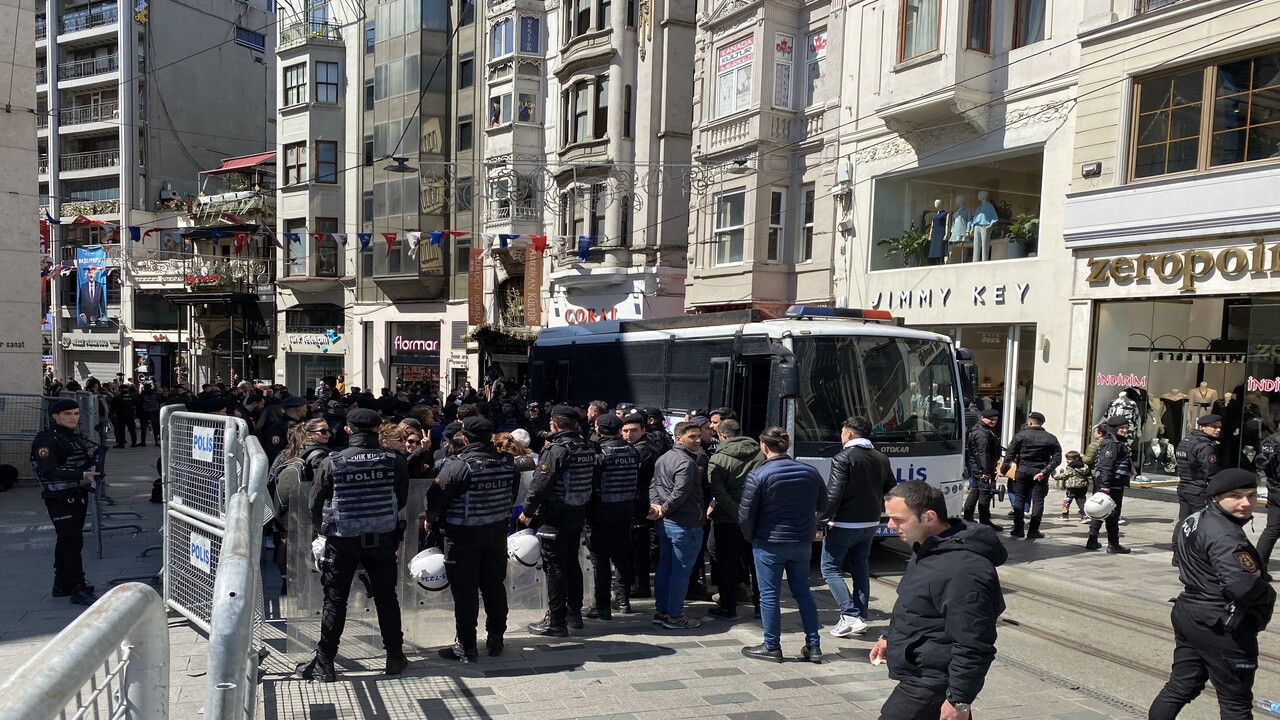Top Turkish court finds rights violation in police use of teargas on May Day
Turkey’s Constitutional Court has ordered the state to pay compensation to a citizen who was severely injured by a tear-gas canister fired by a police officer on May 1, 2013. In its ruling, the top court referred to the teargas use as a “weapon” and said citizens can use their democratic right to gather in a peaceful way.
Duvar English
Turkey’s Constitutional Court has finalized its decision on the application of Dilan Alp who was hit by a gas capsule fired by police as she wanted to gather at Istanbul’s Taksim Square on May 1, 2013.
The top court said that the police’s action to bar demonstrators from gathering constituted a violation of the right of assembly and ordered the state top pay 87,750 liras to Alp, according to reporting by online news outlet T24.
In 2010, the Istanbul Governor’s Office allowed the May 1 rally to take place, for the first time in 32 years. However, the rally was banned in 2013 on the grounds of pedestrianization project. In response, several NGOs said that they would object to this ruling and still gather at Taksim Square. During the police intervention, Alp was hit by a gas capsule and severely injured with fractures and tissue damage occurring at her skull.
After her treatment, Alp filed a criminal complaint against the-then Prime Minister Recep Tayyip Erdoğan, Interior Minister, Istanbul Governor, Istanbul Provincial Chief, and police officers that personally took the action.
The prosecutor’s office initially combined Alp’s case with other lawsuits filed with regards to the May 1, 2013 police violence, but separated it three years later, launching an investigation.
The case lingered for several years over the Istanbul Police Department’s refusal to give out the names of officers that were on duty that day and refusal to release information with regards to identification numbers on police helmets. Eventually, the prosecutor’s office dropped the charges against the police officers in question and classified the case among “ongoing” ones. However, no action has been undertaken for years, with Dilan taking the case to the Constitutional Court.
In its ruling, the top court referred to the teargas use as a “weapon” and said it needs to be utilized “in a proportionate way” in line with the Constitution and only when “there is no other option, in obligatory situations.” It said that authorities need to check if police are “getting sufficient training with regards to weapons used for the firing of gas cartridge.”
The top court said that Dilan had not undertaken any violent action, which is why the use of power was not a necessity. The top court found both a violation of the right to life and a violation of freedom of assembly.
“In a democratic society, those defending their ideas with peaceful methods should be given the opportunity to express themselves through the freedom of assembly and other legal means,” it said.
The top court also criticized the prosecutors’ failure to identify the police officers who fired at Alp and run an effective investigation. In the end, the top court ordered the state to pay 87,750 liras in compensation to the applicant.

 Turkish police temporarily detain Saturday Mothers in Galatasaray Square despite top court’s rulingHuman Rights
Turkish police temporarily detain Saturday Mothers in Galatasaray Square despite top court’s rulingHuman Rights Top Turkish court rules for retrial of police officer who killed Uğur KurtHuman Rights
Top Turkish court rules for retrial of police officer who killed Uğur KurtHuman Rights